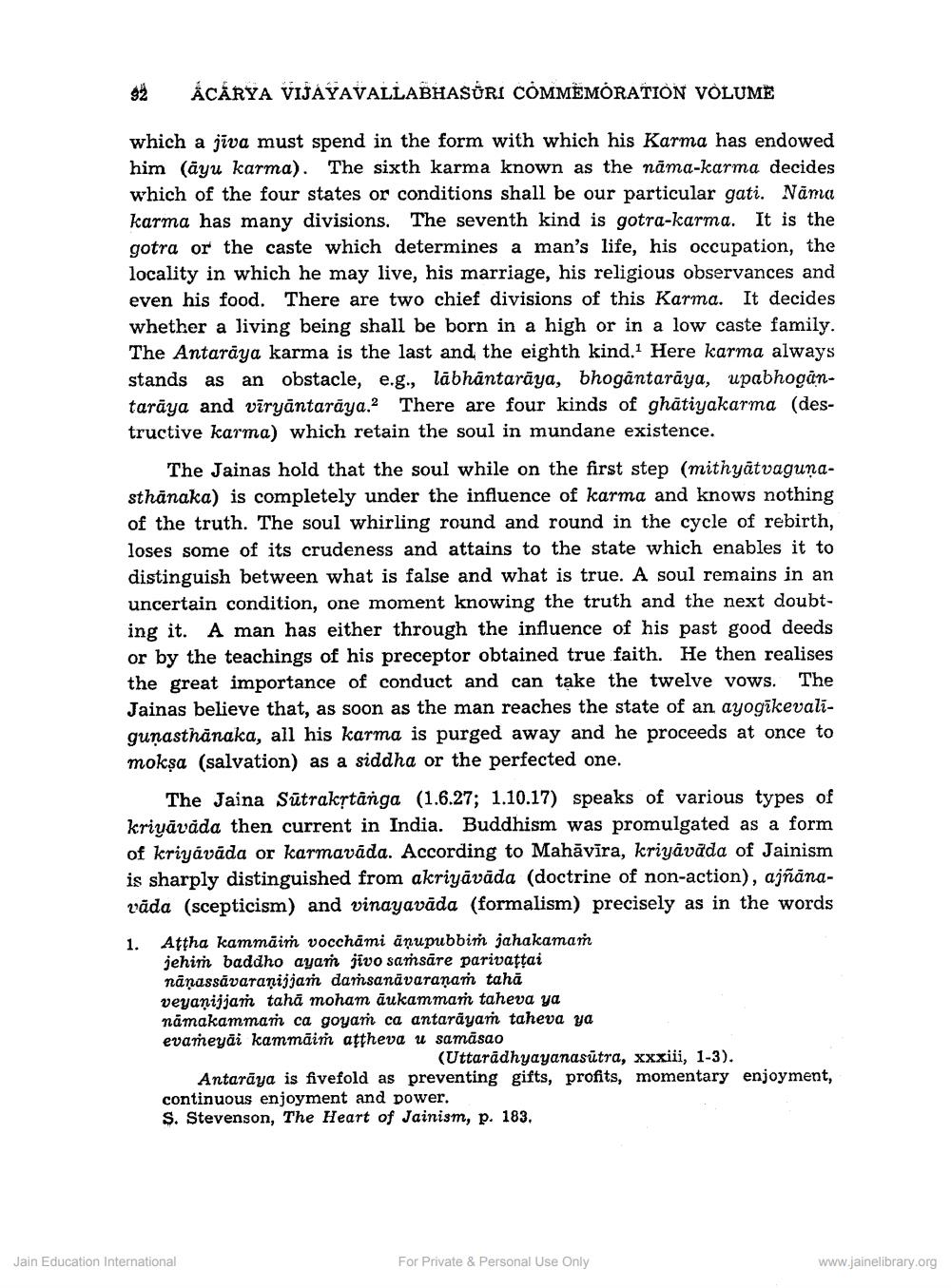Book Title: Fundamental Principles of Jainism Author(s): B C Law Publisher: Z_Vijay_Vallabh_suri_Smarak_Granth_012060.pdf View full book textPage 6
________________ $ ÁCĀRYA VIJAYAVALLABHASORI COMMEMORATION VOLUME which a jiva must spend in the form with which his Karma has endowed him (ayu karma). The sixth karma known as the nāma-karma decides which of the four states or conditions shall be our particular gati. Nāma karma has many divisions. The seventh kind is gotra-karma. It is the gotra or the caste which determines a man's life, his occupation, the locality in which he may live, his marriage, his religious observances and even his food. There are two chief divisions of this Karma. It decides whether a living being shall be born in a high or in a low caste family. The Antarāya karma is the last and the eighth kind.1 Here karma always stands as an obstacle, e.g., lābhāntarāya, bhogantarāya, upabhogantarāya and vīryāntarāya. There are four kinds of ghātiyakarma (destructive karma) which retain the soul in mundane existence. The Jainas hold that the soul while on the first step (mithyátvagunasthānaka) is completely under the influence of karma and knows nothing of the truth. The soul whirling round and round in the cycle of rebirth, loses some of its crudeness and attains to the state which enables it to distinguish between what is false and what is true. A soul remains in an uncertain condition, one moment knowing the truth and the next doubting it. A man has either through the influence of his past good deeds or by the teachings of his preceptor obtained true faith. He then realises the great importance of conduct and can take the twelve vows. The Jainas believe that, as soon as the man reaches the state of an ayogikevaligunasthanaka, all his karma is purged away and he proceeds at once to mokşa (salvation) as a siddha or the perfected one. The Jaina Sūtrakstānga (1.6.27; 1.10.17) speaks of various types of kriyāvåda then current in India. Buddhism was promulgated as a form of kriyavāda or karmavāda. According to Mahāvīra, kriyāvăda of Jainism is sharply distinguished from akriyāvāda (doctrine of non-action), ajñānavāda (scepticism) and vinayavāda (formalism) precisely as in the words 1. Attha kammāim vocchami āņupubbin jahakaman jehim baddho ayam jivo samsāre parivaţtai nanassavaranijjar darsanavaranam tahā veyanijjam taha moham āukamman taheva ya nämakammam ca goyam ca antarāyam taheva ya evameyai kammāim attheva u samāsao (Uttarādhyayanasūtra, xxxiii, 1-3). Antarāya is fivefold as preventing gifts, profits, momentary enjoyment, continuous enjoyment and power. S. Stevenson, The Heart of Jainism, p. 183. Jain Education International For Private & Personal Use Only www.jainelibrary.orgPage Navigation
1 ... 4 5 6 7 8 9 10 11 12 13 14 15 16 17 18 19 20 21 22 23 24 25 26 27 28 29 30 31 32 33 34 35
